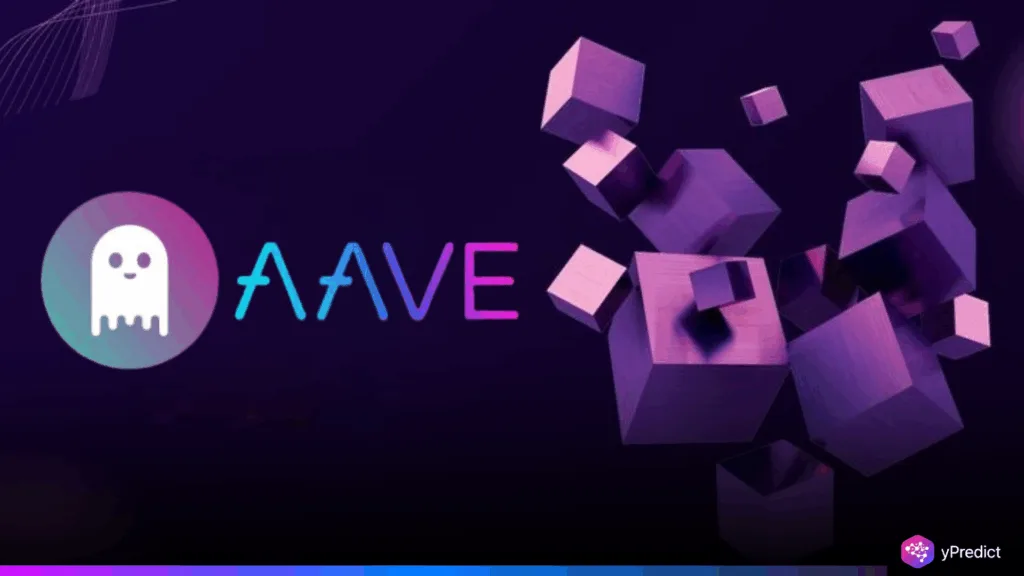
In a major step toward bridging centralized and decentralized finance, the Aave DAO has greenlit the Ink Foundation—an initiative backed by crypto exchange Kraken—to launch a white-label lending platform. The July 17, 2025 vote passed with near-unanimous support, signaling the community’s willingness to explore AI-enhanced DeFi models despite early resistance to centralized influence. The protocol will operate on Kraken’s Ink blockchain and integrate directly into the Optimism Superchain. Its design aims to streamline revenue share models and attract substantial liquidity through token incentives.
AI-Led DeFi Moves Closer to Centralized Structures
The Ink Foundation’s proposal outlines a new blueprint for lending in the AI-powered DeFi landscape. With Kraken’s backing, the foundation will deploy Aave’s decentralized protocol within a custom interface built on the Optimism Superchain. This marks a deliberate shift—combining centralized infrastructure with AI-automated smart contract systems.
The move stirred community debate before approval. Concerns over weakening decentralization were prominent. However, the Aave DAO’s final decision reflects an emerging consensus: AI’s efficiency and security gains may justify closer partnerships with centralized platforms. The project’s white-label architecture will enable Kraken and other institutions to utilize Aave’s liquidity without modifying its core protocol, therebyfurther blurring the lines between CeX and DeFi.
Revenue Share and Token Incentives Drive Liquidity Goals
The proposal includes a competitive incentive package to drive adoption and liquidity. Aave DAO and Ink Foundation plan to distribute 4% of Ink tokens to participants while offering a 5% revenue share from the platform’s earnings. This model not only rewards early users but also aligns with AI-managed risk models that dynamically adjust lending rates and TVL targets.
These incentives are set to attract up to $250 million in total value locked (TVL) in the initial stages. The AI engine embedded in the protocol will monitor liquidity inflow and optimize rates accordingly. This real-time response mechanism, backed by predictive learning models, makes the protocol adaptive—essential in a volatile DeFi market.
Optimism Superchain Supports AI-First Expansion
The partnership positions the protocol squarely within the Optimism Superchain, a key layer-2 network built to scale Ethereum-based dApps. The Superchain’s modular design provides ideal conditions for deploying AI-enhanced smart contracts. Low latency, faster execution, and reduced gas fees give the Ink Foundation a robust environment to deliver high-throughput DeFi products.
The integration of AI also addresses one of DeFi’s core challenges—user trust. AI tools embedded in the lending mechanism are designed to enforce on-chain transparency, detect anomalies, and generate predictive insights. These features reduce manual oversight, limit risk exposure, and create a stable revenue share pipeline for stakeholders.
Institutional Adoption Tests DeFi’s Core Ideals
The approval of the Ink Foundation underlines a broader 2025 trend—DeFi is no longer resisting institutional entry. Instead, it is reshaping its structure to make room for AI-optimized TradFi integrations. The IMF, in a recent report, noted that AI-powered risk assessments and regulatory compliance models are boosting institutional confidence in DeFi protocols.
Still, this convergence isn’t without controversy. Critics argue that increased reliance on centralized entities like Kraken compromises the open ethos of blockchain. Yet, as AI takes over key operational roles—from liquidity rebalancing to user scoring—the definition of decentralization is also evolving. The DAO vote proves that communities now prioritize scalability, security, and performance—areas where AI shows unmatched potential.






